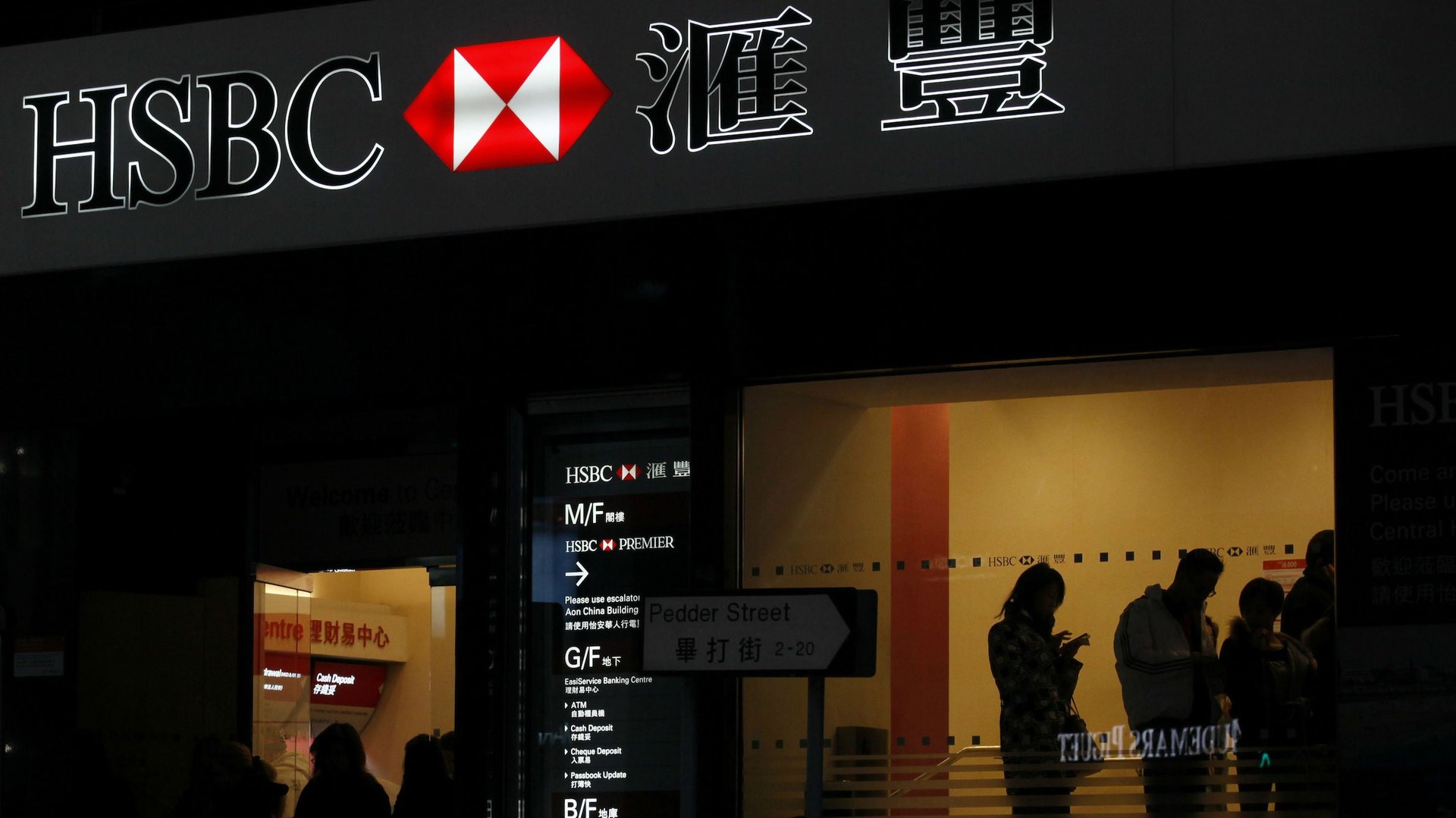Five reasons HSBC would sell its $9 bln stake in Chinese insurer Ping An
British bank HSBC Holdings is in talks to sell its stake in China’s second largest insurer, Ping An Insurance Group. Last year HSBC announced plans to overhaul operations by shedding underperforming businesses and focusing on where it can make the most money. But Ping An has not been a bad investment, and China’s insurance industry is one of the world’s fastest growing, having expanded 21% annually from 2000 and 2010. So why sell?


British bank HSBC Holdings is in talks to sell its stake in China’s second largest insurer, Ping An Insurance Group. Last year HSBC announced plans to overhaul operations by shedding underperforming businesses and focusing on where it can make the most money. But Ping An has not been a bad investment, and China’s insurance industry is one of the world’s fastest growing, having expanded 21% annually from 2000 and 2010. So why sell?
1. HSBC could use the profit to pay billions of dollars in potential fines over money laundering charges. The sale would make HSBC about $7.5 billion. The bank spent $1.7 billion to build its 15.6% stake in the Shenzhen-based company back in 2002, and now its stake is worth about $9.3 billion. Earlier this month, HSBC said it could face criminal charges and fines of more than $1.5 billion over accusations that the bank let clients illegally move money from countries like the Cayman Islands, Iran, and Syria.
2. That $7.5 billion could be used to meet new requirements on banks to triple the amount of capital reserves held against losses. Selling Ping An would help HSBC raise its Tier 1 capital ratio, a measure of financial strength, by 0.17 percentage points (paywall), according to Goldman Sachs. (As of September, HSBC’s ratio was 11.7%.)
3. Offloading insurance has been a trend for HSBC. In March, HSBC sold its general insurance businesses in Hong Kong, Singapore, and Mexico to France’s Axa SA for $494 million. Australia’s QBE Insurance Group Ltd. is buying its operations in Argentina and Hong Kong. HSBC is also close to selling its 18% stake in a Vietnamese insurer Bao Viet Holdings, according to reports.
Moreover, China’s insurance industry is not without risks. In January, the head of China’s regulatory body on the insurance industry, Xiang Junbo, faulted Chinese insurance companies for their low capitalization, unsophisticated risk management, and lack of product innovation. He said the industry is falling behind the needs of the country.
4. The move could also relieve pressure on HSBC to sell off other investments (paywall) and businesses in China, where it has been more aggressive than any foreign bank. HSBC’s 19.9% stake in Bank of Communications, China’s fifth largest bank by assets, is considered a more important holding, worth about $9.8 billion. HSBC also has an 8% stake in Bank of Shanghai, a 62% stake in Hang Seng Bank Ltd, and a 13% stake in Industrial Bank Co. The bank has over 130 branches in China and its own life insurance operation through a joint venture with National Trust Ltd.
5. Finally, reputation could be an issue. Revelations that relatives of outgoing Chinese premier Wen Jiabao made at least $2.7 billion from his position of power include the fact that his mother had a stake in Ping An worth $120 million.
Other points to consider in this deal, as noted by Reuters: The sale will need approval from China’s insurance and banking regulators, which limits the field of buyers somewhat. China has typically only allowed financial groups to own stakes in its big banks and insurers. Also, the IPO of Pacific Insurance Company of China could steal away potential buyers who would have been interested in the Ping An stake.